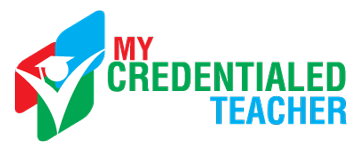Behind America's Tutor Boom - MarketWatch
By Missy Sullivan
For Nanette Vaughn, tutors have become like that proverbial bag of potato chips -- she can't stop at just one. When her son, Ryan, needed help prepping for a private-school admissions test, she reached out to a tutoring company called Club Z, which sent over Alan, a newly minted fifth-grade teacher Vaughn calls a "wonderful communicator." Later, when Ryan needed a leg up in math, Club Z dispatched a succession of "delightful" and "helpful" graduate students who, unfortunately for Vaughn, kept graduating. And when Ryan's sister, Olivia, needed intensive reading help, Vaughn drove her eight miles each way -- twice a week -- to a veteran special-ed teacher they learned about via word of mouth. "Loved that woman," says the Atlanta-based stay-at-home mom.
But the deeper Vaughn has dug into the tutor Doritos bag, the messier the crumbs have become. Lately, the instructors she has found through a Web-based tutor marketplace have been a lot more hit-or-miss. The family members adore their current tutors, who drilled Olivia for her own private-school entrance exam and helped Ryan boost his math grade from a D to a B. Still, to find those tutors e schools attended, degrees held and teaching-experience accrued. Part of her winnowing process? Ruling out any candidates whose resumes include typos, bad grammar or a "creepy" photo. "I like to think I have a pretty good judgment about who my children are going to be near," she says.
Shouldering more of the work hasn't reduced Vaughn's tutoring tab: She says she has spent close to $8,000 over the past few years, on top of two hefty private-school tuitions. And just when she thinks she has been fairly well-schooled in the ways of the tutoring world, she's reminded that it's nothing if not an ongoing education. After all, the family was pretty excited about a hip and personable young musician and former math major -- until he disappeared into thin air the night before Ryan's big test. "It's been an odyssey," Vaughn says.
Whether they're seeking remedial help for their child or a leg up to the Ivy League, millions of parents are encountering a frustrating new homework project of their own: learning the intricacies of the tutoring-industrial complex. The "supplemental education" sector is now an estimated $5 billion business, 10 times as large as it was in 2001, according to Michael Sandler, founder of education-research and consulting firm Eduventures. Tutoring firms no longer offer just subject-specific help in, say, Latin or chemistry; increasingly, they're marketing a dizzying menu of test prep, study skills, enrichment tutorials, scholastic summer camps and prekindergarten readiness programs. And students looking for late-night homework assistance now have the formerly unthinkable option of typing in Mom or Dad's credit card number and connecting -- in real time -- to an anonymous tutor halfway around the world via text, Skype and online "whiteboards."
It's all a far cry from the days when the best way to find a tutor was to ask other parents on the soccer sidelines or pull a tab off a grocery-store flier. The tutoring field is increasingly centralized (website WyzAnt boasts a stable of more than 38,000 tutors) and corporate (the top three firms alone collectively have nearly 2,500 franchised centers around the country). It's also ever more expensive: In certain elite circles, tutors charge as much as attorneys. For-profit tutoring companies even have their own lobbying arm, the Education Industry Association, that pushes for legislation, such as a pending bill that would let parents use pretax money for tutoring. And while other industries struggled through the downturn, the tutoring sector has grown more than 50 percent since 2008, according to Eduventures. "We're somewhat recession-resistant," says Joe Nativo, chief financial officer of Kumon Math and Reading Centers, a chain that says it has taught more than 4 million children worldwide.

